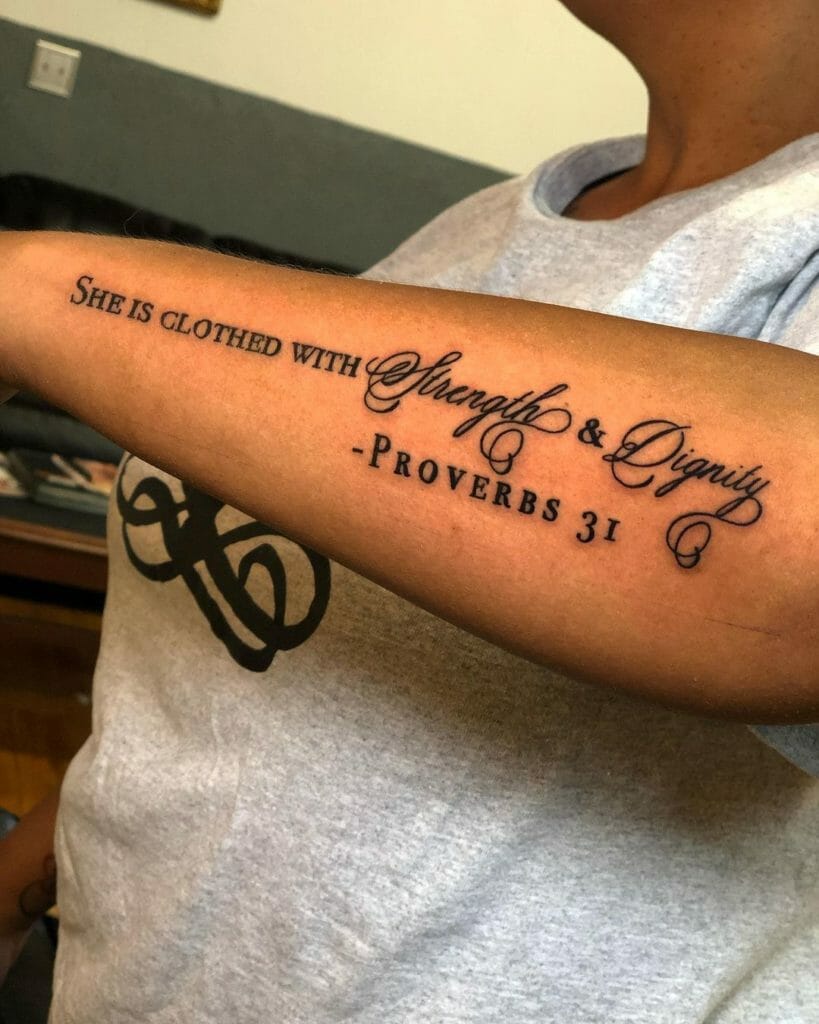What Does The Bible Say About Tattoos?
Does the Bible offer a clear-cut answer regarding tattoos, or is the matter more nuanced than we often assume? Navigating the scriptures on body modification requires careful consideration, balancing tradition with individual interpretation and spiritual discernment.
The enduring debate surrounding tattoos and Christian faith often surfaces questions of personal conviction, cultural context, and scriptural authority. The Bible itself, however, does not explicitly prohibit the practice of tattooing. The verses that are frequently cited in discussions about body art require careful examination, considering their historical context and intended meaning. This exploration seeks to provide a framework for understanding the various perspectives on this evolving issue, prompting thoughtful reflection rather than dictating a definitive stance.
To delve deeper into this complex discussion, let's examine some key aspects of the subject. First, it is crucial to acknowledge that the Bible was written over thousands of years ago, in cultures far removed from our own. As such, a literal interpretation of every passage may not always be appropriate. Instead, we must strive to grasp the underlying principles and values conveyed, and consider how those principles can be applied to modern-day issues. A verse that speaks directly about markings on the skin is Leviticus 19:28, it is frequently cited in discussions about body art. It states, "Ye shall not make any cuttings in your flesh for the dead, nor print any marks upon you: I am the LORD."
- Amazon News Updates Financials More Latest Insights
- Prison Break The Ultimate Guide To Seasons Streaming
Heres a table to facilitate understanding of the discussion:
| Aspect | Details |
|---|---|
| Biblical Text Mentioning Body Markings | Leviticus 19:28 is the most direct reference, prohibiting cuts in the flesh for the dead and the printing of marks. |
| Historical Context of Leviticus 19:28 | This verse likely reflects a prohibition against pagan practices related to mourning rituals and idolatry. |
| New Testament Perspective | The New Testament doesnt directly address tattoos; however, it emphasizes principles like honoring God with your body (1 Corinthians 6:19-20) and avoiding offense to others (1 Corinthians 10:23-24). |
| Interpretive Challenges | The context of Leviticus and its relevance for modern Christians is debated. Some believe it represents ceremonial law, while others see it as reflecting moral principles. |
| Motivations for Tattoos | Personal motivations include self-expression, commemoration, aesthetics, and spiritual expression. |
| Body as a Temple | 1 Corinthians 6:19-20 states, "What? know ye not that your body is the temple of the Holy Ghost which is in you, which ye have of God, and ye are not your own?" |
| Freedom in Christ | Galatians 5:13, "For, brethren, ye have been called unto liberty; only use not liberty for an occasion to the flesh, but by love serve one another." |
| Spiritual Application | Prioritizing spiritual beauty and inner transformation over outward appearance is emphasized. |
| Cultural Considerations | Tattoos have evolved in meaning across different cultures and time periods, from pagan to modern aesthetics. |
| Personal Conscience | Each believer should prayerfully consider their conscience and seek guidance from the Holy Spirit in the decision to get a tattoo. |
| External Links for Reference | Bible Gateway - Leviticus 19:28 |
The verses provided in the scriptures should be used to analyze the topic. Study the bible, pray, and ask God for wisdom, and seek the guidance of the Holy Spirit. The Bible offers a range of guidance and principles that Christians can apply when considering body modifications such as tattoos and piercings. While the Bible does not offer explicit rules on this subject, it encourages believers to think carefully about their motivations, honor God with their bodies, and prioritize spiritual beauty over.
Many people consider verses such as 1 Corinthians 6:19-20 which states that your body is a temple of the Holy Spirit within you, whom you have from God It is a reminder of the sacredness of our physical beings and the importance of treating them with respect and care. Some believers interpret this to mean that permanently altering the body through tattoos is a violation of this principle, while others focus on the idea of honoring God through a lifestyle of holiness and inner transformation, even if they choose to have tattoos. It is equally true that the Bible doesn't explicitly condemn tattoos outright.
In the Old Testament, the law of Moses included specific prohibitions against body markings (Leviticus 19:28). However, Christians often interpret this law in light of the New Testament, where the emphasis shifts from strict adherence to legal rules to a life of faith and love. The New Testament emphasizes the freedom that believers have in Christ, which allows them to make choices based on their conscience and spiritual discernment. While some may still hold to the Old Testament prohibitions, the majority believe that the verses are not a clear-cut prohibition against tattoos.
The topic of tattoos and their acceptance in Christian faith has been a point of debate among believers for many years. The Old Testament references to body markings were often connected to pagan rituals and mourning practices. Understanding the original cultural context is therefore critical for thoughtful interpretation. The core message of the New Testament centers on love, grace, and the freedom to serve God. Therefore, it provides a basis for evaluating tattoos in the context of personal conviction and spiritual maturity.
The verses that offer wisdom and perspective on the body, its purpose, and how Christians should view external markings is a crucial aspect. The Bible encourages believers to focus on inner transformation, such as a heart transformed by God, over merely external appearances. Whether or not a Christian chooses to get a tattoo often comes down to their motivations, how their decision will impact their witness, and whether it will glorify God. The choice should be made with thoughtfulness, prayer, and a willingness to be guided by the Holy Spirit.
Scripture does not directly address modern practices, it does offer guidance on how we should honor God with our bodies. This includes seeking guidance on how our beliefs intersect with personal expression. Exploring verses that touch upon the topic of tattoos, unraveling their meanings and shedding light on the principles underlying this practice can be enlightening. Knowing that the Bible does not directly address the modern practice of tattooing as we understand it today can be helpful in understanding the context of the scripture.
The references that might relate to body markings in the bible come from a different historical and cultural context. It is also important to consider the cultural context of any verse. The Bible discusses the topic of markings and adornments in the context of worship and culture. Some believers find body modification as a way to express their faith and personal values, while others may question it due to their understanding of scriptural teachings.
The New Testament does offer guidance on how we should honor God with our bodies and how we should express our faith in a way that reflects our commitment to Him. As we delve into the Bible verses about tattoos in the New Testament, one important aspect to consider is the concept of our bodies being temples of the Holy Spirit. This reminds us that our bodies carry God's presence and are sacred. Knowing that God knows us better than we know ourselves, we can seek His will.
Consider the body, soul, and spirit, which is mentioned in some verses. These verses explore concepts such as the importance of the body, the idea of freedom in Christ, and the call to holiness. Many questions may come to mind, but if we seek understanding, we can find answers, and with faith and guidance, we can come to a conclusion.
In the journey of faith, we may come across various teachings from the Old Testament that can give us insights regarding tattoos. Some might refer to Leviticus 19:28, a verse that speaks directly about markings on the skin. In crafting a list of Bible verses about tattoos, its important to note that the Bible does not directly address the modern practice of tattooing as we understand it today. While some argue that the Bible prohibits tattoos as sinful, a closer examination shows that the verses traditionally associated with condemning tattoos require thoughtful interpretation.
When considering the application of these principles, its essential to recognize that the scriptures don't offer one-size-fits-all answers. The specific verses about tattoos in the Bible and how they apply to modern believers must be understood with a thoughtful approach. Personal convictions and interpretations may vary. In this process, we seek understanding on how our beliefs intersect with personal expression. Remember that God's grace and love can guide us through these decisions, providing insights that illuminate our path and help us honor Him in every choice.



Detail Author:
- Name : Kaci Balistreri
- Username : cronin.anjali
- Email : rickey19@wintheiser.com
- Birthdate : 1997-10-12
- Address : 160 Alf Mill East Rutheburgh, CA 37013
- Phone : +16314033534
- Company : Kovacek, Blick and Ledner
- Job : Tax Examiner
- Bio : Id aut corrupti et. Sapiente harum doloremque laudantium ipsum qui dolor molestias. Aut magni beatae quae corrupti iste.
Socials
tiktok:
- url : https://tiktok.com/@jettie.mcglynn
- username : jettie.mcglynn
- bio : Sit doloremque asperiores accusantium doloribus tempore facilis dolores.
- followers : 642
- following : 2758
facebook:
- url : https://facebook.com/jettie_mcglynn
- username : jettie_mcglynn
- bio : Autem amet suscipit veniam amet eius praesentium qui.
- followers : 6934
- following : 499
twitter:
- url : https://twitter.com/jmcglynn
- username : jmcglynn
- bio : Fugiat exercitationem ut aut aliquid. Neque cumque natus libero eligendi id consectetur. Error esse ratione ratione vitae quae repudiandae hic.
- followers : 2884
- following : 2430
instagram:
- url : https://instagram.com/jettie.mcglynn
- username : jettie.mcglynn
- bio : Qui dolores dolorem consequuntur ut. Aut quasi est quia quidem maiores. Accusamus quae id aut vel.
- followers : 3625
- following : 2362
